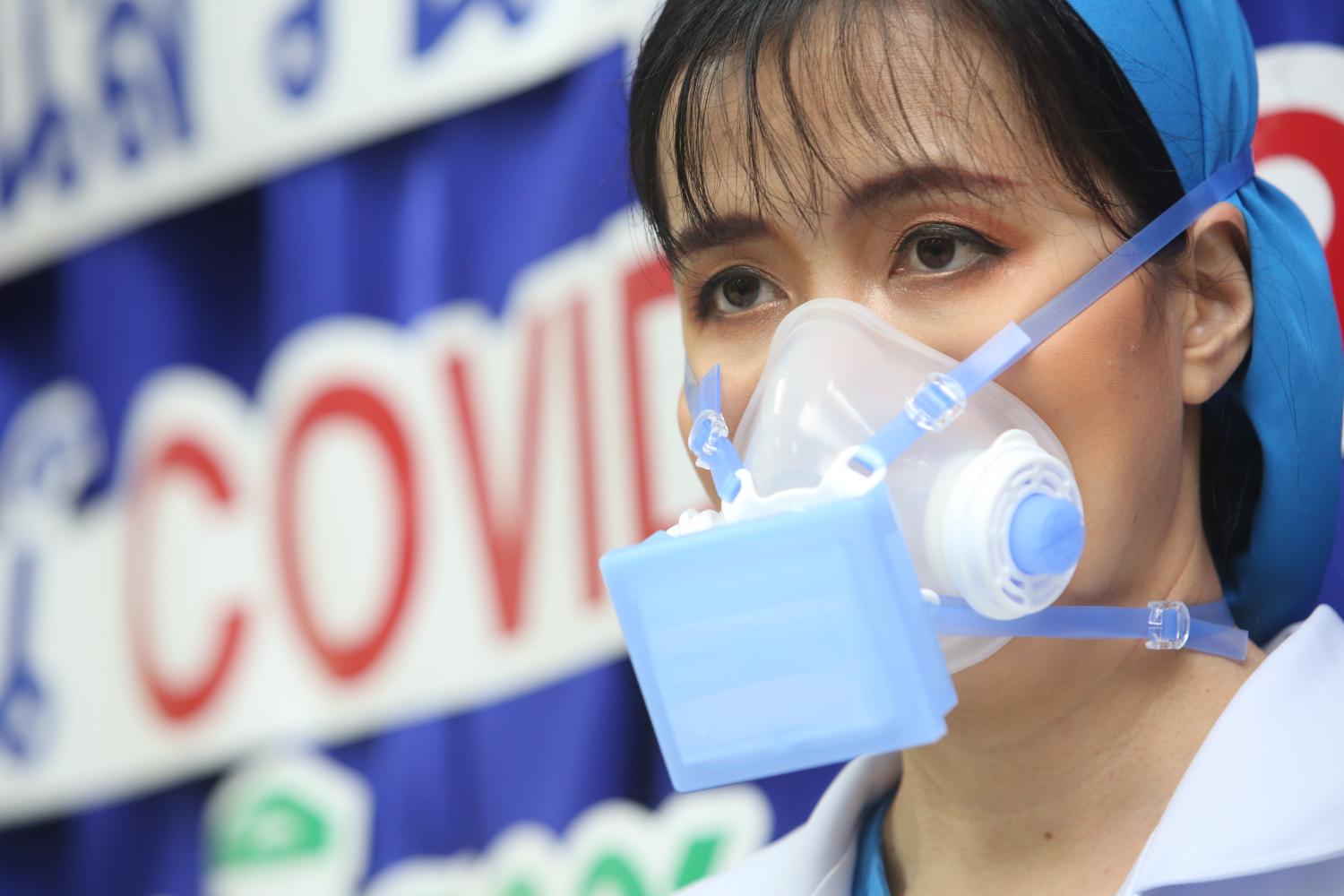
Rapid-result testing will be used to detect Covid-19 infections in Samut Sakhon while more beds will be arranged at a field hospital which is providing treatment to infected patients.
Samut Sakhon governor Veerasak Vijitsaengsri said on Friday that he has ordered the testing method to be changed to ensure quick results and cover all at-risk groups of Thais and migrants in the province.
The current method of inserting a swab into the nose to get a fluid sample will be replaced by taking blood samples from people, the governor said, adding that results from the new method come back in 30 minutes and costs are cheaper.
He went on to say that the field hospital currently has 30 beds and the number will be increased to 100 to accommodate the rising number of patients.
The hospital has been opened at the now-infamous shrimp market in Samut Sakhon, despite strong objections from locals.
The Central Shrimp Market has become a hotspot of new infections among mostly migrant workers.
The field hospital is treating Covid-19 patients with mild symptoms, while those who are more seriously will be sent to regular hospitals.
The field hospital is divided into three main zones: wards, a waiting and screening area, and a treatment area.
Immigration authorities have set up a centre at the field hospital to compile information about migrant workers, each of whom is required to register via the police's biometric system.
Even though the field hospital has already started providing treatment, people in three Samut Sakhon sub-districts have strongly opposed it.
More than 100 people from Bang Ya Phraek, Krok Krak and Wat Tuek gathered on Thursday shortly after the field hospital was set up and tried to stop military vehicles entering the site to complete its facilities.
Representatives of the protesters said they were not confident in the hospital's security and feared that people in the neighbourhood might contract the virus. The protesters proposed that a field hospital be set up at a fishing pier instead.
Responding to local opposition to the hospital, Prime Minister Prayut Chan-o-cha on Friday urged Thais to show compassion for migrant workers who received treatment at the field hospital.
He said that migrant workers deserved credit for their role in Thailand's development.
He tried to allay people's fears, saying Samut Sakhon has been designated as a maximum control zone, with special measures to contain the virus.
In another development, the 14 Myanmar workers who were abandoned in Samut Prakan on Tuesday tested negative for Covid-19 on Friday. However, they will remain in quarantine for 14 days.
The workers were taken from a factory in neighbouring Samut Sakhon province, where hundreds have tested positive for Covid-19.
